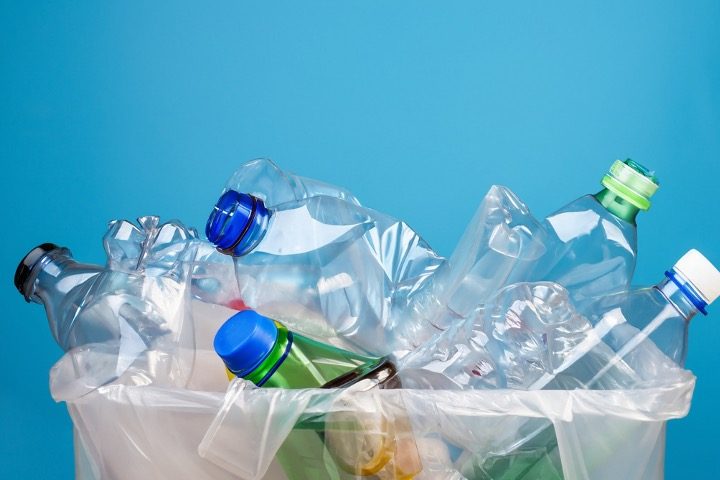
It was to be a routine voyage.
It would become historic.
On March 22, 1987, the barge Mobro 4000, loaded with six million pounds of garbage and towed by tugboat Break of Dawn, departed Islip, New York. It was bound for Morehead City, North Carolina — but never did dock there. Instead, it spent the next five months at sea, turned away by multiple states and three foreign countries. It became big news, with journalist Dan Rather calling it “the most watched load of garbage in the memory of man.” But another load of garbage was the story the media spun about it. In reality, no one would accept the Mobro because of a rumor that it was carrying medical waste. But that’s not the narrative the media pushed.
It advanced the notion that the Mobro’s fate was a result of a lack of dump space.
The “solution,” of course, was recycling. The timing was perfect, too, as there already was increasing public concern about waste. Oh, never mind that, as Reader’s Digest reported decades ago, 1,000 years’ of America’s trash could fit in an area 50 square miles (one square mile per state) and 200 feet high — the average modern dump’s height. “Never let a crisis go to waste,” and this one wasn’t wasted: The story helped catalyze the recycling movement. The Mobro 4000 might have been at sea, but recycling proponents’ ship had come in.
Of particular concern, too, is plastic, with stories of the material polluting our oceans. But what if plastic recycling is a myth, if not a scam, that is not only wasteful but environmentally damaging?
The Lie, Like the Mobro, Got Halfway Around the World. Is the Truth Finally Getting Its Boots On?
Writing at The Telegraph today, Ben Wright states that not only is plastic recycling a myth, but it’s one that’s “unravelling.” Consumers dutifully jump through hoops sorting trash, believing it’s good citizenship. But, Wright points out, they’ve been deceived. Fifty-eight percent “of all plastic waste in the UK is incinerated, 14 per cent is exported to other countries and 11 per cent is sent to landfill,” he informs. “Just 17 per cent is actually recycled.”
It’s even worse in the U.S., according to investigative reporter John Stossel. Only about five percent of our plastic is recycled, he stated last year. In fact, he says, even environmentalist organization Greenpeace admits that “most plastic simply cannot be recycled.”
The issue, both Wright and Stossel note, is that plastic is extremely inexpensive to produce while recycling is costly. Wright illustrates the problem, pointing out, for example, that “different plastics … must be treated differently.” And with there being “approximately 40,000 different man-made polymers,” as he informs, this can get complicated.
A “Green” Material in Wolf’s Clothing?
What’s more, is plastic really an environmental boogeyman? Not according Dr. Chris DeArmitt, widely considered one of the world’s premier plastic-materials scientists. He says that recycling isn’t necessary to make plastic “green” — it already is. In fact, troves of studies demonstrate that plastic does the least environmental damage in 93 percent of packaging cases, DeArmitt asserts. As Wright relates:
For example, a study conducted by Imperial College in 2019 found that replacing plastic on food packaging with alternatives (such as cotton, glass, metal or bioplastics) would on average increase the weight of the packaging by 3.6 times, the energy use by 2.2 times and carbon dioxide emissions [note: CO2 is not a pollutant] by 2.7 times. Paper bags are heavier than plastic bags and so require more fuel to transport. Glass bottles are much heavier than plastic bottles but also take more energy to make in the first place.
What’s more, plastic tends to do a better job. That difficult-to-remove polyethylene shrink wrapping around a cucumber ensures it lasts three times longer than if exposed to the air. Ban it and, all other things being equal, you would have to grow three times as many cucumbers and transport them all from Spain, the Netherlands, Morocco and Greece (the countries from which the UK imports most of this vegetable).
Indeed, if you look at the benefits derived from only three applications for plastic — making cars lighter, providing cheap insulation for homes and reducing food wastage — all the polymers produced by mankind have net a positive impact on the environment. “Yes, plastics are made from fossil fuels and, yes, that means they have a carbon footprint,” says Dr DeArmitt. “But if you only look at the deficit side of the equation you are being dishonest.”
(Note: In reality, there’s no such thing as a “carbon footprint.” Calling CO2 “carbon” is like calling H2O “hydrogen.” It’s a propaganda term.)
Not an Innocuous Myth
Whatever the downsides of eliminating plastic would be, recycling obsessions bring their own harms. First there’s the economic impact. Providing an example, Stossel stated last year that his “city would save more than $300 million a year if it just stopped recycling.” The reason? The recycling industry uses increasingly expensive labor to create materials whose value is continually declining.
Then there’s the environmental damage. Because it’s not worth doing the recycling in America, much waste “is shipped overseas to countries like Malaysia,” said Stossel. Its fate?
What “they don’t burn, they sometimes dump in the ocean,” Stossel explained. In fact, every minute, one garbage truck full of plastic is dumped into the sea.
Sadly, all this could be avoided if we’d simply drop the recycling obsession and put the plastic waste in landfills. And again, we have plenty of dump space.
Believe or not, too, the government is finally acknowledging the recycling myth — in a way. “Last month, California filed a first-of-its-kind lawsuit against ExxonMobil,” Wright tells us, “alleging it falsely promoted the recyclability of plastic.”
But here’s the real story: First the government and establishment media create and promote the recycling myth. Next, under pressure, business goes along with it. Then, when the charade is exposed, government doesn’t just blame business. It also seizes the opportunity to fleece it of more money — costs that will be handed down to consumers.
In other words, the state even has criminal syndicates beat. When gangsters get caught, they’re just happy to have a fall guy to take the blame. It all reminds me, too, of how my father used to say, “The government is worse than the mafia.” Its protestations here are as authentic as plastic flowers.




